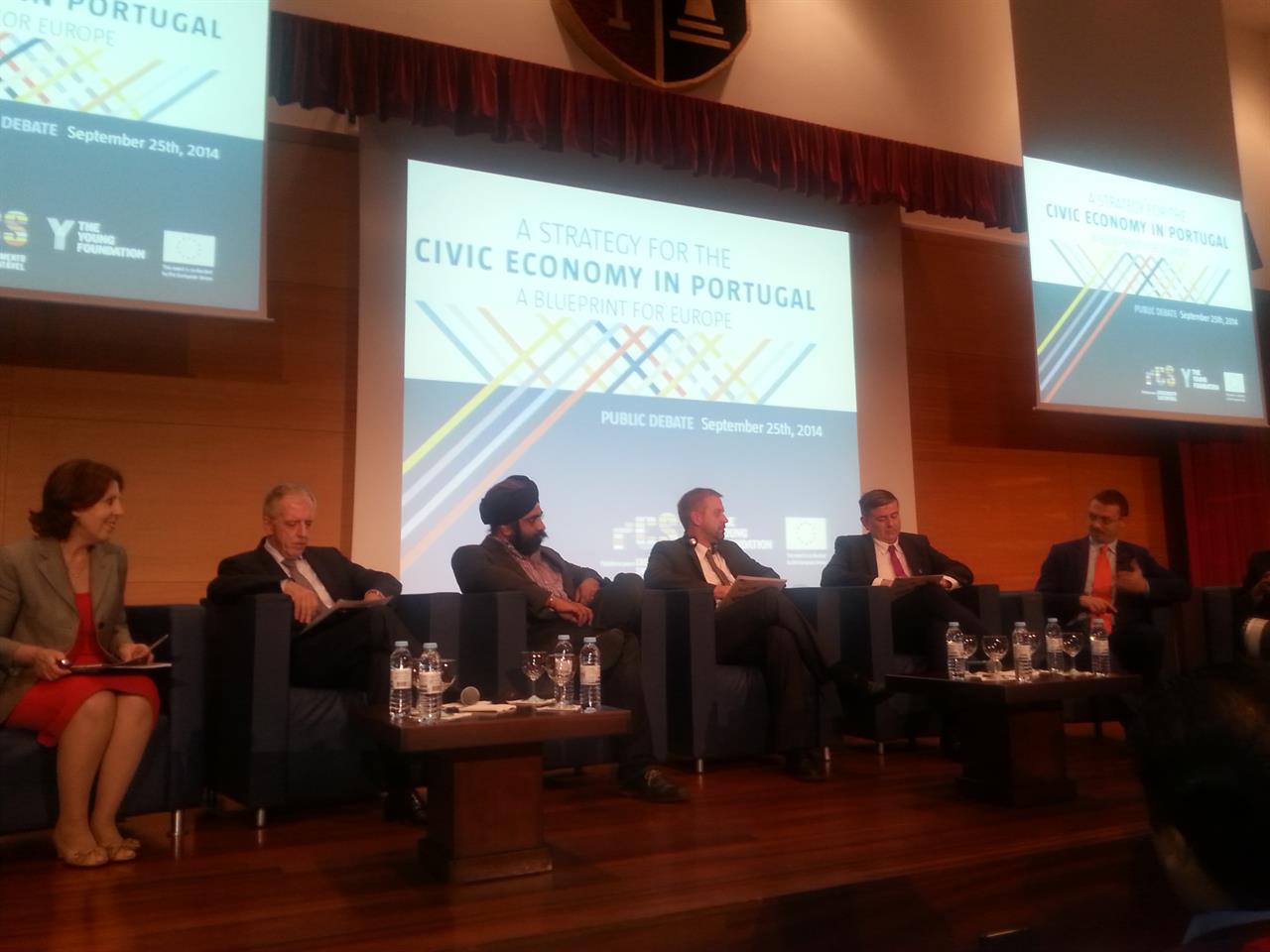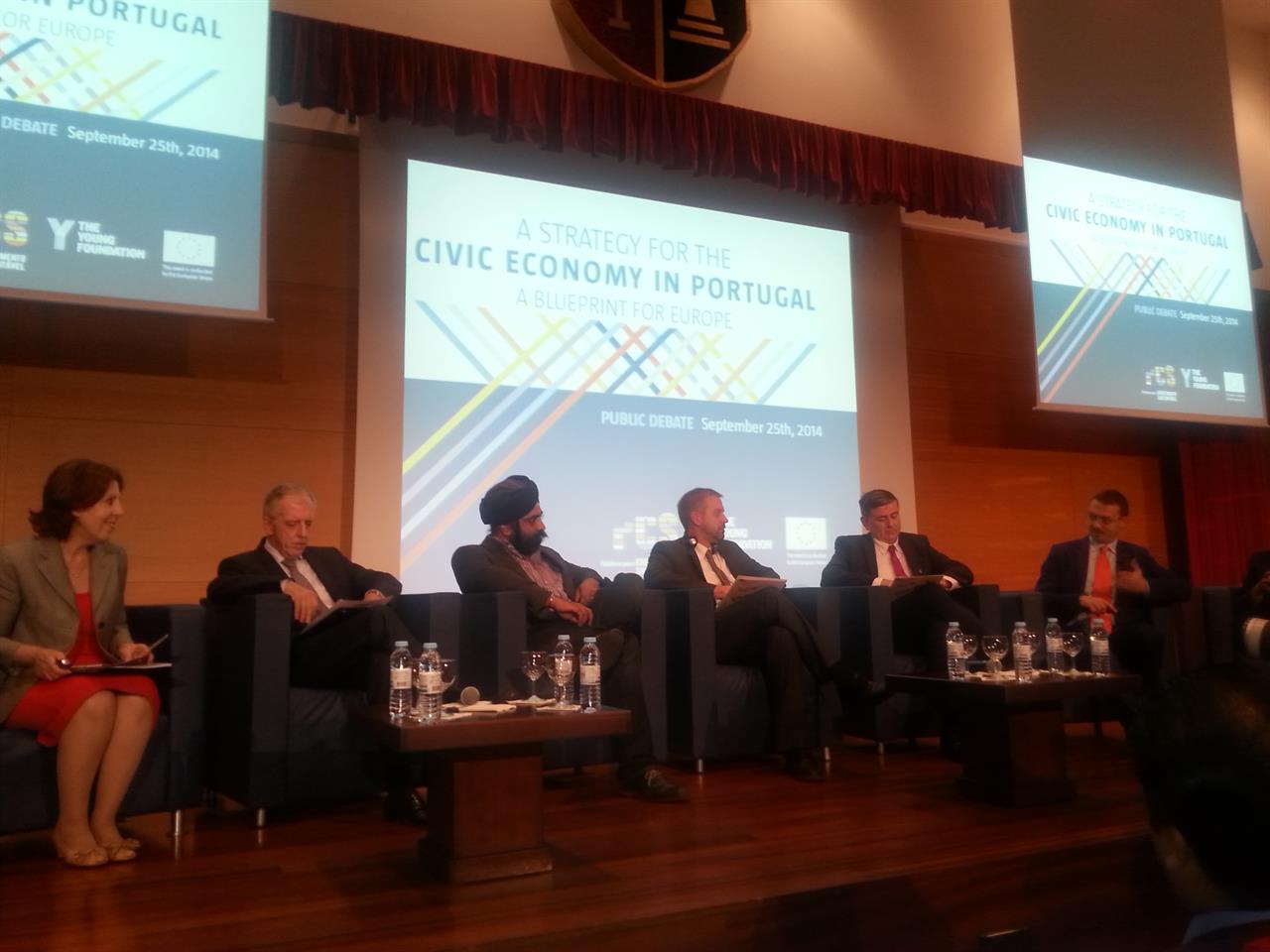
“Europe today accounts for just over 7% of the world’s population, produces around 25% of global GDP and finances 50% of global social spending”.
Angela Merkel loves repeating this sentence at every presidential gathering to summarise that Europe cannot afford its social bill anymore. Its shrinking share of global wealth cannot sustain its current budget for social services. Costs have to be cut. This is the rationale behind the last seven years of austerity.
At first sight this makes sense. Merkel is acting like a scrupulous head of the family. She wants to defend the financial sustainability of Europe. Her logic responds to the same that built the Welfare State after WW2: the economy generates the surplus that the State taxes to fund those public services that build the capabilities of people who contribute to economic
growth. So the system is self-sustaining as long as the economy does its job.
However there might be an alternative that the German Chancellor hasn’t considered yet. Why doesn’t Europe turn its social spending & cost into actual investments and empowered local delivery and innovation for a new type of economic growth?
This is the challenge that Portugal has taken; and started exploring a new frontier for societal development.
Many have called for this kind of change including original economists such the Nobel Prize laureate Elinor Ostrom, but few have taken the same path.
The UK has been perhaps the pathfinder in this journey initiating the transformation of its social sector into a new engine for economic growth started with the New Labour Government and advanced by The Coalition Government.
The UK during the course of this transformation has created a multiplicity of institutional interventions like Future Builders to help charities becoming more entrepreneurial and win contracts for public service provision. It has invented new legal forms for social enterprise and supported professional associations like Social Enterprise UK to promote a new type of entrepreneurship and build the skills of young people. An entire new set of institutions (30+) have been built over fifteen years to create the social economy market and empower new generations of innovators and economic players.
But the UK is not an exception. As President Obama took office in 2008 he set up the Office of Social Innovation and Civic Participation at the White House. The same year President Barroso – inspired by organisation like the Young Foundation – brought the social innovation agenda in the European Commission and, in 2010, social innovation became part of the European strategy to support solutions to societal challenges developed by citizens, charities and social enterprises.
Also the Holy Father recently went public in favour of a new type of finance – called impact finance – that reconcile financial with social and environmental returns. We should not be surprised, this is in line with previous encyclicals and evokes an economic theory which is unknown to the most but is rooted in the civic economy flourished in the monasteries and free cities since the Middle Age.
And let us be clear the State, charitable organisation, private philanthropy, cooperative movement, responsible corporations have always invested in the creation of public good. There is no society without it.
In Portugal this tradition would take us back to XVI century when the first Misericordias were established by the Royal family to provide health, educational and social services to the people. Then in 20th century this became public policy. The State created the public welfare. Public good became a state monopoly, and free access of every citizen to welfare services a
pillar of the social contract.
Trillions of value equivalent have been invested in society over the last century. However this capital allocation was not deemed “investment”. There was no need nor real means to identify the returns on investment. Politics dictated the agenda and taxation picked the bill.
Portugal, in turn, is now evoking the courage to go a step further. Portugal undoubtedly deserves the title of leading laboratory for experimenting with alternatives to austerity. This is a legitimate badge of honour. Despite or because of the crisis we are beginning to witness a new conversation – a real system change conversation that goes beyond the illusion of single magic bullets of Social Impact Bonds or Social Investment Funds – the recognises the systemic need to transition a whole economy; a transition which needs to be co-produced both top down and bottom up. This journey has begun.
In July Government announced a €150m Social Innovation Fund. It’s the first fund of this kind capitalised with European structural funds.The details of the fund haven’t been public published yet but this is no doubt the kickstarter of this new economic paradigm.
In accordance with Minister Poiares-Maduro Government wants the fund to stimulate the transformation of social services provision: from a sector relying on government grants and payments for actions and activity, to a new ecosystem driven by social innovators, entrepreneurs, rewarding outcomes and contextual innovation.
This plan should establish the macro-infrastructure for the new sustainable impact economy – which aligns the emerging capital of impact investment funds with the possibility of new revenue sources and innovation driven savings.
This is a courageous journey of a Government restraining its power to control and being open to innovation, creating an opportunity to drive real systemic change of the social economy, turning capital into a tool for empowerment and systemic renewal.
The fund will unleash the potential to innovate of entrepreneurs, non-profit organisations and potentially every citizen. The centre is giving back power to society as a whole to allow innovation to flourish. It’s the first recognition that the singular monopoly of public good provision is not longer functional in a emergent and complex world. It’s the rebirth of the social economy.
However government on its own cannot do the job alone. This capital requires a match coming from society.
1. It requires a movement engaging all stakeholders and citizens. This is the bottom up strategy that the Social Innovation Bank (BIS) has built in the last two years. In an increasingly multi-stakeholder world; legitimacy and authority is no longer centralised or singular. It is not enough to make the right decisions but it is also increasingly necessary to build a movement and a constituency along with them. 21st century system change needs more – it requires us to drive and build multistakeholder
movements for change – spanning citizens, NGOs, Public Service Delivery agencies etc, especially if the decisions have a systemic impact and affect the future beyond very narrowly predictable outcomes.
2. It requires a financial architecture which is democratised – the new social economy , it must not be mechanism for just private corporate capital, but a genuine mechanism for society as a whole to invest in their commons, in their nation, in their social infrastructure. The Impact Finance economy of Portugal must be a retail proposition at the outset – it must be a Civic Economy.
3. This new paradigm also requires solid data and a systemic approach to research & development, we need to transition from anecdotal & craft to systemic.
A sustainable civic economy depends on the development of a whole suite of innovations and evolutions; we need new collective impact & outcome finance models, architectures, tools and instruments, new models of governance and the development of new means to capture or causally infer impact. And only by taking this approach that goes beyond the notion of a single magic bullet, and embraces systemically Economic Democracy whilst recognising the need for a system of interventions can we hope to create a sustainable civic economy fit for the 21st Century.
Authors
Maria Do Carmo Marques Pinto, Filippo Addarii, Indy Johar, Paola Bergamaschi Broyd
Si può usare la Carta docente per abbonarsi a VITA?
Certo che sì! Basta emettere un buono sulla piattaforma del ministero del valore dell’abbonamento che si intende acquistare (1 anno carta + digital a 80€ o 1 anno digital a 60€) e inviarci il codice del buono a abbonamenti@vita.it

